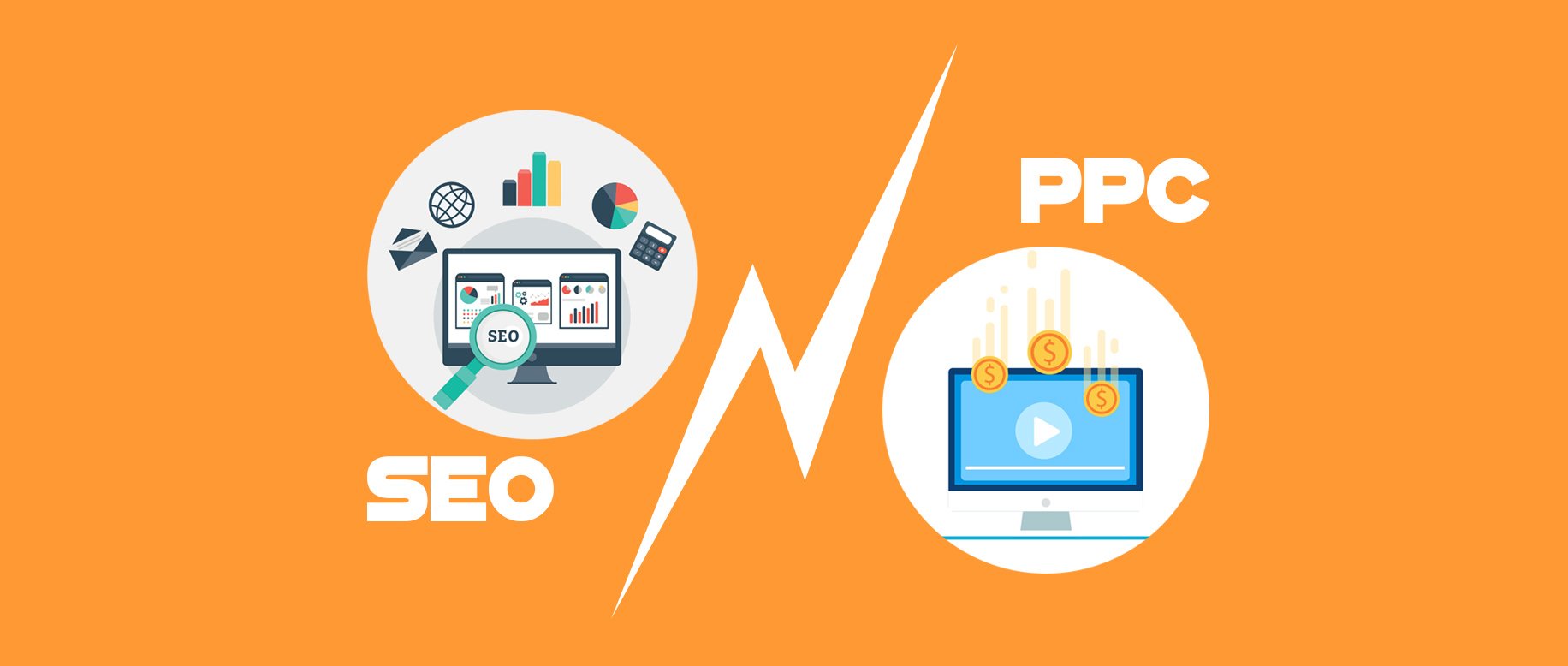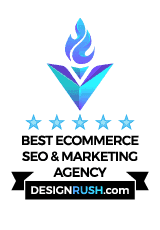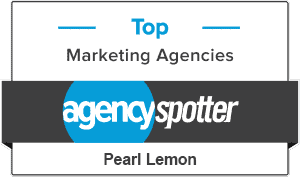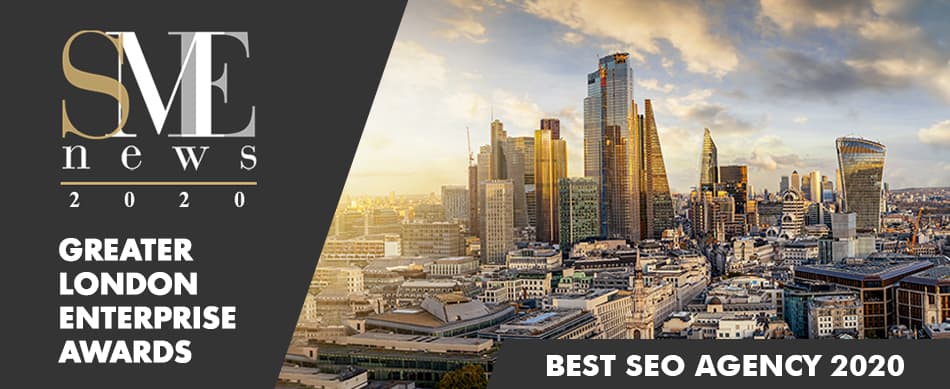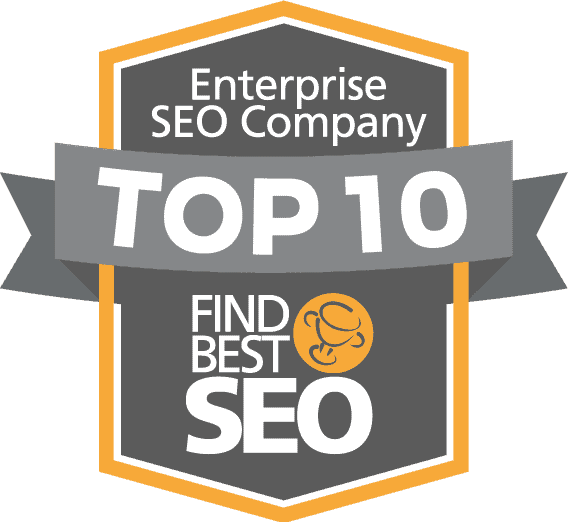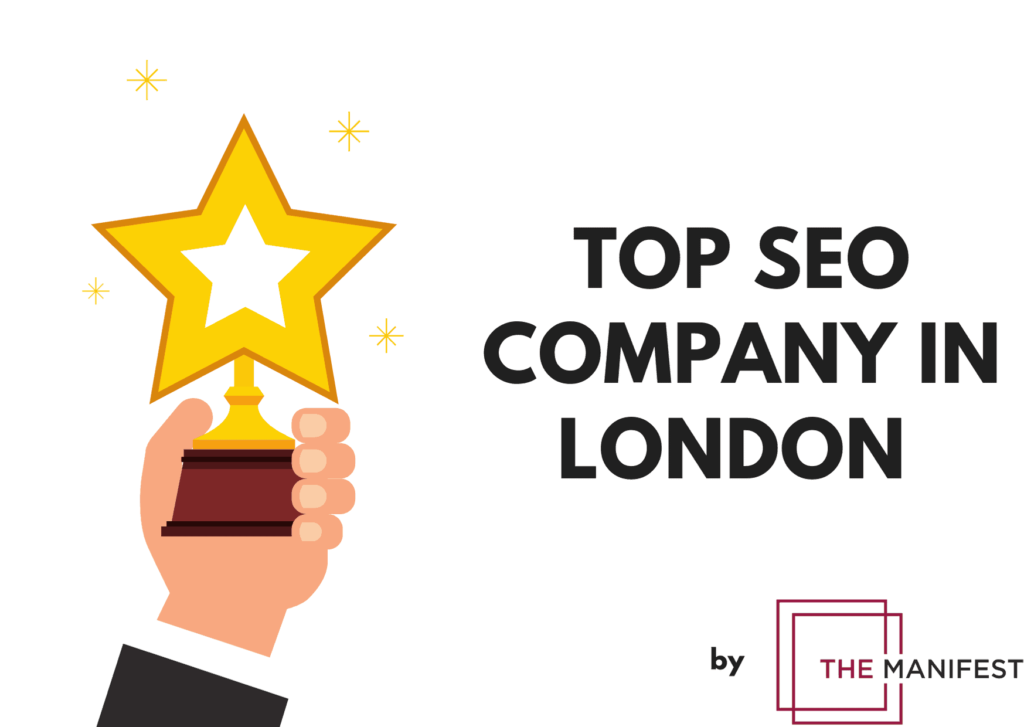For those in the SEO space, it’s the age-old question:
Does paid traffic perform better than organic traffic?
It’s not a simple question (you’re likely already balking at my phrasing, for instance). And it hasn’t got a simple answer, either. Of course, we all know that SERP results are an essential factor when it comes to generating website visitors. In fact, an average of 67k searches are performed on Google per second. But before we wade into this timeless debate, let’s break it down a bit for those of you who may be scratching your head already.
Let’s do a quick overview of each method:
PPC
PPC (or pay-per-click) is a marketing system wherein advertisers pay a fee each time one of their ads is clicked. Essentially, you are paying for traffic, as opposed to generating it organically. A 2019 survey showed that paid search ads increase brand awareness by 80%.
There are a variety of approaches to this method. One of the most popular is Search Engine advertising. Advertisers can bid for a place in a search engine’s sponsored link slot (Google is a prime example of this). The search engine will rank you for whatever keyword search you’ve successfully purchased – for example ‘SEO agency New York’ – and if you’re the highest bidder, you might show up in the top sponsored slot.
Another option is automated ad bidding which can be accomplished through the use of automation scripts. This can be achieved with the assistance of marketing automation agencies or online automation tools, which are geared toward assisting businesses or marketing teams in keeping pace with the competition.
SEO
Search Engine Optimization is a process that focuses on creating organic traffic for your website. It involves a wide range of online factors, such as keyword research, content creation, link building – and the list goes on! As of the close of 2019, SEO was directly responsible for bringing in 25% of organic searches for keywords.
This method is definitely more time-consuming. The key difference is that it is working towards getting your website ranked higher through ‘natural’ means. This means that your website is actually earning all the traffic it receives. It also means that while results will be much slower than you’d see through PPC, they’ll also have a much longer lifespan.
So which works better?
The general consensus among the digital marketing community is that it depends on the kind of results you are after. For example – do you need an instant influx of web traffic, and do you have a budget to sustain this long enough to reap the benefits? If so, PPC could be the fastest route for you.
If, however, you’re operating on a tighter budget and are looking at playing the ‘long game’, investing in SEO might be a better fit.
A third option is to strategize and create a ‘hybrid’ version of the two. Using results from a PPC campaign to boost SEO is an affordable way to create long-term web traffic.
We’ve reached out to established experts in the digital space for up-to-date advice. Pull up your comfiest office chair and have a read…

CEO - Community Tax
Jacob Dayan
It’s a tough call determining which is better, especially since it can vary depending on your industry. In our experience, however, PPC has generated more traffic and leads for sure, but it can get quite costly. On the other hand, our organic traffic has been a valuable source of leads as well. If I had to choose one over the other, I would lean towards concentrating on your organic rankings as it will grow and help funnel leads over the long run, whereas PPC generates leads through the campaign you’re running and is great for short-term growth. Ideally a combination of the two is an ideal scenario, but not always achievable/affordable.
CEO - The advisor Coach
James Pollard
In my opinion, PPC is better than organic (although it’s close). They both have their pros and cons, but the fact that you can more easily control paid traffic makes it the winner for me. If you stripped me of all my marketing assets, reputation, brand, etc. and forced me to rebuild everything from scratch, I would invest heavily into paid advertising. Organic traffic is great, but it’s subject to the whims of the search engines’ algorithms and is more difficult to control. Plus, it takes more time to see results. With a paid ad, I can publish it tonight and begin getting data as early as tomorrow. This helps me pivot and make better business decisions over the long-term.


Founder - The Gray Company
Tory Gray
When it comes to the classic “SEO vs. PPC” debate, my general answer is: both! If you can afford it, both are ideal, as they have different benefits that complement one another. If you can’t swing both, here’s how I break it down:
1) Do you have money to throw at the problem, and need results *fast*? Then PPC is your path.
– This is common for venture-funded organizations or established businesses who want results – and new customers – quickly. However, the cost per acquisition will remain relatively high over time. And if/when you turn it off… the results go away.
2) Do you have a more limited budget, and are willing to wait for outsized results at a significantly lower cost per acquisition?
– SEO acts much like compounding interest on your retirement savings. Doesn’t seem like much to start… but it adds up substantially over time, in ways that PPC can’t possibly replicate.
At the end of the day, it’s a pretty simple time/cost/investment trade-off. Doing both together means the best of both worlds – results now and later, and at a lower cost.
CEO - Uwwweb
Brandon G.
Most clients are looking for long term growth, not short-term growth. Even though there is the option of instant gratification (like we receive with PPC), it never seems to be the correct answer when a business is marketing for success. Pay per click feels like an easy way to grasp attention, for a short period. Anyone can pay to boost their business online, but organic traffic takes effort, time, and industry insight.
In the long run, most businesses will see the lasting effect that each type of marketing has on their business. Those who invest in pay per click will need to have a consistent flow of cash into the pay per click funnel. While those who invest their time into an SEO strategy will find they are not only spending less time and money on marketing efforts, but the type of clients they are receiving from their marketing are loyal lifetime clients.


Digital Marketing Specialist -
Blue Compass
Mallory Cates
While both SEO & SEM bring-in valuable users to a website, our team believes search engine optimization is the solution businesses should invest in for long-term success. Building your SEO momentum and credibility helps your website bring in free, organic users that are more likely to convert.
Additionally, ranking in the top spots for valuable pages can improve your SERP positioning for other pages, bringing in even more users. For example, we’ve been optimizing and creating helpful content for a local pest control client, and SEO has helped their organic traffic increase 450% in the last five years, while their website conversions continue to increase each year as well.
PPC advertising can be very effective and should be used to supplement website traffic while you build your SEO foundation. SEM is extremely useful for new businesses looking to get their name in front of potential customers. If your business has a great product or service but you’re not on page one of search results, you’ve got to be willing to pay to get there. PPC also gives your brand an opportunity to claim top-ranked positions for competitive keywords in the industry.
Junior SEO Executive -
Activewin Media
Lucy Mahoney
It’s always a good idea to build a solid organic foundation from day one. It aids your business with the best possible set up to drive sustained traffic for the long term. But for those new to the industry, who want to establish themselves in search engine results quickly and gather as much user data as possible, PPC may be the more advantageous choice.
If instead, your goal is to convert users into customers and sell products, organic may take the crown as it can leverage user relationships built solely on trust. As well as being more cost-effective, many SEO practitioners like myself have a soft spot for organic as, although it can take a long time to implement, the fulfilment of ranking for your competitive keywords is second to none.
Make no mistake, the ‘winner’ of the two will depend wholly on your goals, budget, and industry setting – but that doesn’t mean SEO experts won’t favour one over the other.


Sr. SEO Specialist - Hookagency
Cody Warren
Organic traffic drives 50 percent of all website traffic. (That’s more than paid and social combined!) On top of that, 70 to 80% of people searching focus on organic search results, completely skipping all of the ads on top. That being said – we see a lot of small businesses very impatient with how long it takes to get results in Google organic (avg. 6-12 months) so those companies need to find ways to scale out ads in the meantime if they need results ASAP.
Co-Founder & Technical Director
- Exaweb Corporations
Patrick Garde
In my opinion, SEO is more cost-effective in the long run as compared to PPC. Assuming you follow all the best practices, SEO is an effective long-term medium you should consider in your digital marketing channels as the effects of SEO can be felt for years. Although PPC can give you instant exposure, it comes with a cost as you get to pay per click for your ads. Another issue with PPC is when you stop paying, you will not get traffic. Anyway, if you have the budget, you can also run a PPC campaign to complement your SEO campaign.


Editor - Etia
Jennifer Willy
SEO (Search Engine Optimization) is there to optimize your website so that they rank higher in Google and other search engine searches. To achieve that higher rank, leads are important. To generate leads there are various methods like PPC ads or generating organic leads. In my opinion, organic leads are always better than others.
Paid marketing tactics like PPC are good for initial push but after that it’s all on you. Your content and services have to be top-notch to keep the visitors and traffic flowing. Organic leads are long-staying in that sense as you have to use desired and trending keywords to generate consistent traffic. Apart from all this, it is also way cheaper than the paid marketing as your personal marketing team handles it.
Founder - GetVoIP
Reuben Yonatan
In my opinion, no method is more effective than the other. Each method occupies a unique space, and they work together to give you the best results. For example, at GetVoIP, we use PPC for short-term and intense marketing campaigns because it delivers better results. In contrast, for lead generation, we prefer organic traffic.
Sure, organic traffic has more pros than PPC. It is less costly, it builds brand trust, and it has a better ROI. Still, on its own, it will not deliver maximum results. PPC and Organic Traffic are meant to work together.


Director - Ascelade Company
Cyrus Yung
I would recommend using both at the same time if you have the budget and not enough time;
For new sites: Focus 80% on PPC, and 20% organic.
For less than a year site: Focus 60% organic, and 40% PPC
For 1 to 2 year old site with over 1000 monthly search traffic: Focus 80% on organic, and 20% on PPC.
For established sites, focus 90% on organic and 10% on PPC (retargeting included).
The main reason is that what your site is ranking organically may not be the keyword that is converting to a sale.
Always find out what keyword(s) lead to sales, and do your best to rank for both organically and on PPC.
CEO - Alejandro Rioja
Alejandro Rioja
I believe you have to strike the right balance when choosing organic or paid search efforts. For instance, if your goal is short term conversion or product sales, PPC is a great option, and if you are looking to build traffic over time, a comprehensive SEO strategy is the way to go. In the short term, PPC is ideal. As long as the ads run, they deliver results but when the budget ends, so do the benefits.
Since SEO depends on your site’s content, and metadata, having a detailed strategy to deliver outcomes takes more time than putting together a PPC campaign, but the SEO outcomes are more significant to you in the long run. The comparison between the two is not always black and white. Each method ensures value, you just have to see which one matches your campaign’s goals at a particular time.


Owner - Khrisdigital
Khris Steven
Well, in my opinion and from my experience, organic traffic via SEO is better. However when it comes to my overall recommendation on which is better I’d say it ultimately depends on the level you’re in.
If you’re in a growth stage with more time with or less budget – then organic is the best bet. While paid traffic is better employed when you have enough budget, perfected offer and desire to scale faster.
The thing is, ads help amplify what’s working or not working. So if your offer sucks, all the traffic ads bring, won’t do you any good because you don’t know how to convert them. Nevertheless, organic traffic has been my bread and butter for almost half a decade now. It is a scalable marketing channel with a pretty low investment upfront.
It takes time – no doubt – but when it takes off, it becomes unstoppable. More like a compound effect. I choose organic any time any day. In fact, users who perform commercial search queries are more likely to convert because that type of search implies a desire to buy a product. That said, further research has it that 88% of consumers start their product research online. Again, on the other hand, one study found out that almost a larger percentage of Google users ignores paid ads. And another study discovered that 44% of Facebook users avoid clicking on ads on their feeds.
Writer - Romantific
Samantha Moss
The effectiveness of each method depends on your digital marketing strategy, that is why understanding your target audience’s needs and preferences is important. As a business owner, the best course of action is to weigh the advantages and possible disadvantages that each method can give.
PPCs or pay-per-click methods are improved advertisements and viewers will continue to view them as they scroll past. PPC is also convenient for companies and businesses who can’t update their SEOs immediately. While PPCs can’t improve your organic search rankings, it can help businesses of all sizes gain attention from a wider audience. Meanwhile, SEOs are an essential part of online marketing and it gives new businesses a chance to gain traffic. SEOs encourage those who have the tendency to rely on credibility rather than ads. Making your brand more visible to a broader audience can encourage purchase.
When measuring surface metrics, SEOs are much more difficult to correlate than PPCs. PPCs are easily tracked immediately. PPCs are heavily dependent on seasonal campaigns and have competitors, therefore driving your ad spending up. SEOs are for the long-haul on the other hand and have been proven to cost less than PPCs. Ultimately, choosing the best method depends entirely on your resources and digital marketing goals.


Digital Marketing Specialist -
FiG Advertising + Marketing
Niles Koenigsberg
In my opinion, SEO is the more effective way to generate traffic for your site in the long-run. While SEO is more of a long-term process that takes time to deliver results, it is a relatively inexpensive marketing tactic that is far more sustainable than PPC. When SEO is done successfully, your high-ranking organic results will ultimately improve your credibility among consumers, which may lead to repeat business down the line.
When trying to decide which digital route is the best choice for your company, you need to consider:
Budget – PPC ads are rarely ever cheap, as some keywords can come with hefty costs. SEO is a completely free way to generate site traffic.
Timing – If you’re in need of near-immediate results, then PPC is your best bet.
Competition – How competitive is your local CPC market? And how competitive are the SERPs in your market as well?
At the end of the day, we firmly believe that neither of these tactics are better than the other. Instead, it is far wiser to take a dual-pronged approach and simultaneously run PPC ads while improving your SEO. This way, you’ll get immediate results while also gradually improving your future lead generation strategy.
Co-Founder & President -
IT Tropolis
Bob Herman
PPC provides immediate gratification, i.e. pay Google/MS Bing to be featured at the top searches today, thus generating clicks/leads. SEO is a long-term investment to get to first page for targeted keywords over a period of time. Thus, we see it not as a PPC vs. Organic SEO question, but rather as a question of business needs. For well-funded startups and mature businesses we recommend doing both if leads from PPC valued, otherwise focus on organic SEO. For start-ups on a shoe-string budget and smaller businesses with limited budgets, we recommend starting with PPC to drive leads and build revenue, then add SEO when budget allows.


Software & Internet Expert -
Softwarepundit
Bruce Hogan
In the long-run, SEO is a better investment than PPC. The primary reason is that once earned, high ranking content is a defensible asset. Once Google discovers and trusts the content, it’s likely to perform well for several years and is hard to overtake. In contrast, ads run through PPC campaigns are not defensible – any company with a relevant landing page and marketing budget can outbid any other company instantly. SEO is also a better investment from an ROI standpoint. A strong piece of content might take a few days to create, so $500-$1,000, but can drive thousands of visits over its lifetime. Purchasing that number of clicks for a few dollars each would cost far more.
Vice President -
Break Free Academy
Drewbie Wilson
Organic traffic online is far superior to PPC because when you turn off payment for the PPC campaigns, that flow of traffic stops. Organic traffic continues to work indefinitely. Also, PPC campaigns are more of an interruption marketing tactic, whereas organic traffic comes from specific searches or research on a product or service. Organic traffic is going to give you a higher intent prospect versus someone who is interrupted with an offer for a product or service.


Director - G2
Ross Briggs
Consumers have the perception that organic results “deserve to be there,” while paid results bought their way onto the SERP. Succeeding in SEO also allows you to do things that otherwise would not be sustainable in paid channels. For example, the traffic that G2 earns from our CRM category page would cost millions of dollars per year to replicate through paid search, but we are able to capture that same traffic for a fraction of the cost organically.
Paid search does have a place in the strategy thought, use paid search when:
You have a higher profit margin on a product/service than competitors. You’ll be able to outbid and outlast them in the auction, and as they drop out, clicks become cheaper for you.
Organic CTR is low- this is typically a function of SERP features (ads, quick answers, images, knowledge panel, etc.). The busier the SERP, the harder it is to get clicks with a traditional organic ranking..
You are a new entrant to the market and lack the ranking power to appear for important searches. In this case you should be building your organic strategy concurrently, but also not missing out on the power of inbound marketing through paid placement.
CEO - 301 Consulting
Cale Loken
That depends on the business. Organic traffic is an investment and long term, PPC is money spent and now. They both can be successful depending on the needs and goals of the business. Other factors include budget, competition and their ROI for their product/service will determine if they should do PPC, organic or both. A few examples include a national brand looking to rank organically in a competitive industry, may want to look at PPC for now and invest in organic long term. A local landscaper may look for business in the spring and summer, not all year, so PPC makes more sense. Our agency always pushes organic for most businesses, because money is invested in their long term business goals. No matter which direction you go, you need to track rankings, traffic & conversions to ensure your money is being spent wisely.


Seo Consultant -
Lockedown Design & SEO
John Locke
My belief is SEO is more effective than PPC for lead generation and conversions, but here’s why. For our client roster, for those that run paid ads alongside organic SEO campaigns, PPC sessions lead to tracked conversions at a percentage of about 2x that of organic SEO sessions. This might be because people clicking ads have a determined goal to accomplish, while organic SEO visits can be at different parts of the funnel. However, SEO visits for our roster run anywhere from 3x to 5x the volume of PPC. Meaning, the sheer volume of conversions is higher with organic SEO than with PPC. Additionally, once you create content, that web page keeps working for lead generation with no additional spend. With PPC, you are paying for every click and marketing qualified lead. Both SEO and PPC have their place in lead generation, but for our roster, SEO is a clear winner on overall value.
Founder - Makro Agency
Michael Chammas
We believe that the goal would be to do both, PPC and SEO. Companies should learn how to make both these worlds work together. Companies should leverage PPC for its ability to quickly test a large number of keywords and rapidly collect data on keyword performance.
Once a pool of keywords has been confirmed to be valuable, the goal would then be to develop an SEO strategy to ultimately rank for these keywords. Since SEO takes time, brands can continue to invest in PCC up to the point where they rank for their money keyword and no longer have the need to keep paying per click.


Founder - White Peak Digital
Jackson Gartner
I take search engine marketing to weight loss, where SEO is a long-term diet plan or lifestyle change (long-term time investment for long-term results) and PPC is plastic surgery (a quick-fix for quick results that may not last as long).
What it really comes down to is your business goals. If your promotion goals are time-sensitive or you’re on a tight budget, PPC is most likely the way to go. However, if you’re looking for long-term investment into your website so that it will become valuable online real estate and continue to bring you business, SEO is the better option.
If your budget allows for it, the best way to go in order to see benefits from both is a combination of the two. That way, you’ll receive immediate traffic from PPC while you wait to build your website’s online reputation with SEO.
Founder - MaxTour
Matthew Meier
We run both PPC and Organic search campaigns, and by far the organic search traffic is more valuable for our bottom line. Our conversion rate for PPC traffic to our product pages is .05%, while Organic traffic to our product pages converts at 1.7%. With such a big disparity in conversion rates, why do we continue to use PPC search? It is very hard to get organic traffic to product pages because of fierce competition, so we buy our way to the top with ads. It pays to have a balanced approach using both methods.


Founder -
Freedom Bound Business
John Pinedo
In the short-term, PPC is more effective for getting leads to your business quickly. However, some people never click on results with “Ads” next to them in the SERP. They skip down to the organic results, which is SEO territory. SEO is just as effective, but it takes months to rank in the top positions
SEO vs. PPC is dependent on the business’s current standing. If you’re struggling for leads, then get started with PPC. Get the campaign profitable, and once it’s a monthly money machine for your business, you can invest in an SEO campaign. The beauty of going this route is that you’ll know which keywords are your “money keywords” from your PPC campaign, which will, in turn, help your SEO campaign significantly.
CEO - Robben Media
Brian Robben
In the long haul, SEO is the winner over PPC. You can’t beat free organic traffic that converts at a higher rate than ads. This traffic is owned, not rented. Now PPC is better if you’re a venture capital backed startup with millions to spend and you need to quickly establish product market fit. Organic traffic will likely take too long when you need to show significant growth in six months. Though SEO traffic will be more profitable than PPC over the next five, ten, and twenty five years. Plus, ad costs only continue to rise.


Marketing Manage - Curacubby
Anna McVeigh-Murphy
The age-old debate between SEO and PPC isn’t a debate. The simple answer is both – both are effective. And every company needs to be doing both.
Why? Because that’s how you reach the widest possible audience. With organic content, you have an opportunity to build your brand over the long-term by forging trust and relationships with your audience.
Whereas, PPC is an effective strategy to identify qualified leads in the late stage of the funnel with demand generation.
The best marketing teams do both: they develop a brand and scale demand across all channels where their audience lives.
SEO Expert - Itamar Blauer
Itamar Blauer
When measuring the effectiveness of PPC vs organic traffic, it’s all down to time and budget. PPC can be great at delivering short term results as a result of budget being pumped in to target competitive search phrases. However, I do question its sustainability over time, as the cost per click can increase within a more competitive niche. SEO, on the other hand, is very long-term oriented – aiming to futureproof a website to deliver sustained traffic that is highly relevant. So really, this debate boils down to time orientation and budget allocation, but it’s still perfectly reasonable to utilise both disciplines in an overall digital marketing strategy.


Assistant Marketing Manager -
ProofHub
Nandini Sharma
Which method is more effective, in your opinion, and why?
A truly winning marketing strategy, however, is the one that blends these two aspects. However, choosing one of these two depends entirely on your goals. If you are looking for sustainable, long-term traffic and results, Organic SEO efforts are the best bet. However, if you are looking to gain quick, short-term results, going for PPC is the smarter choice.
For e.g., if you are a local business with little competition, investing in local SEO can be a great idea as it will generate the desired few leads. On the other hand, if you are in the eCommerce business, competing with big names like eBay, Amazon, and other players, it is advisable to use PPC since it will give your brand the visibility it needs in the short term.
Remember, organic SEO gives you a strategic advantage since competitors don’t have the option to buy their way in, which is the case with paid marketing, or PPC. In the longer run, organic efforts are more effective.
What are some variables to consider when deciding which works best for you?
Budget, Sustainability, and ROI – I believe these are the three most important variables to consider when deciding whether to go for PPC or Organic SEO.
SEO Editorial Associate -
Choosing Therapy
Lora Bovie
I might be a little biased in that I’ve been working in SEO for almost a decade, but in my opinion, it’s more effective to generate the traffic you want visiting your site. Organic traffic may take more initial investment (both time and money), but once it’s in place, you will end up saving money on this traffic. If your content plan includes SEO, you could effectively capture traffic for years to come. PPC can lead to a lot of traffic upfront, but is very costly and can remain expensive to upkeep.


Founder - Mavens and Moguls
Paige Arnof-Fenn
I started a branding/marketing firm 19 years ago. Using organic and PPC together is ideal as main search engines are constantly changing their algorithms for rankings so stop thinking of SEO and SEM as rival forces. When used together they are complementary services that help boost your marketing strategy/increase brand exposure. Building brand awareness and trust in your brand/business begins by getting your business name to appear in prospect’s searches.
Seeing your brand name appear twice, both on organic and on paid results, creates more brand awareness and intensifies your businesses’ trustworthiness. Research shows that if there are two brands that have apparently the same products, people will be more likely to choose the one they are familiar with. When a brand is shown in organic results alone it only gets 60% of clicks, whereas a brand that appeared in both organic and paid search results, attracts 92% of total clicks. When paid listings are shown beside organic, the click-through rate of paid ads increases. This means that clicks increase for both organic and paid listings when they are both featured and do not detract from each other.
Jr. SEO - Technographx
Hasnain Khokhawala
Seo can help your content rank higher and for a longer period of time.
Organic content found through search engines is more likely to be clicked by the trusted users and audiences which is more effective for local searches and can grow your online presence for a longer period of time.
While PPC (Pay Per Click) requires you to spend money on the ads for your content in front of your audience which is only effective till your budget gets over.
According to me, SEO is more important and effective because to build a strong foundation and presence in the eyes of google would be a step towards success for your organization.
So, by improving your rank among the search results you’re improving your online visibility and domain authority. In other words, building your content on the site and improving your keyword optimization to rank higher and moreover, you’re making your website more relevant in the eyes of Google.
PPC is a form of SEM where you need a publisher like Google or Facebook every time you run the Ad. You may have seen that the search results are tagged with an “Ad” marker where you need to pay more on the higher keyword search volume.
I can present some figures to make it clear what to go for: –
- 80% of the users ignore paid ads in the SERPs
- 88% of users search for local businesses on a device.
- Organic SEO is about 5.66 times better than paid ads.
According to me, paid marketing interrupts audiences with outreach they don’t want whereas organic SEO draws in audiences with the content they love. Your strategy totally depends on your business objectives and invest according to that to grow better.


Partner - Amplitude Digital
Jeff Ferguson
Coming from a more traditional media planning background where we look at various channels as touch points along the consumer journey or stages along the consumer journey, I’ve never once thought of digital media options in a “versus” capacity.
When it comes to organic search traffic, we’ve found that it’s mostly used for upper to mid-funnel activities when people are still getting used to the concept of the product or services. Meanwhile, paid search advertising, in general, usually lives much closer to the bottom of the funnel, taking on the more direct response role in a campaign.
Are there exceptions? Of course! A well-optimized eCommerce site can appear high in search results for individual products without the use of paid search ads. Additionally, many times, we’ve used paid search ads for upper-funnel outreach, especially in the B2B marketplace. Finally, both have been used successfully for post-sale activity, such as “how-to” content that can help with retention and much more.
So, the answer to PPC vs. Organic is: both!
Vice President -
Zero Gravity Marketing
Tim Dugan
It really depends on your goals, current situation (budget, for one) and expectations. SEO can be a great compliment to PPC and vice versa. One can certainly be far more ‘effective’ than the other but it’s dependent on what your goals are. If you’re working with an authoritative brand sometimes some basic, on-site SEO can really move the needle – whereas a small brand with a new website would likely see a lot more success with PPC early on. Identifying what the objectives are for each marketing tactic (along with expectations) are critical before deciding which approach will be more effective. Whether it be traffic, sales, conversions, identifying these goals ahead of time will allow you to truly determine which path is the most effective approach for your campaign.

In Conclusion
While many of our contributors touched on specific factors that can determine which method you should use, the overall consensus is in favour of using PPC and SEO together as one lean, mean machine!
If you’re wondering how to go about this, get in touch with one of our award-winning experts at Pearl Lemon TODAY. We promise to help you figure it out!

